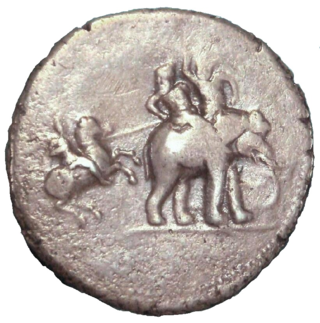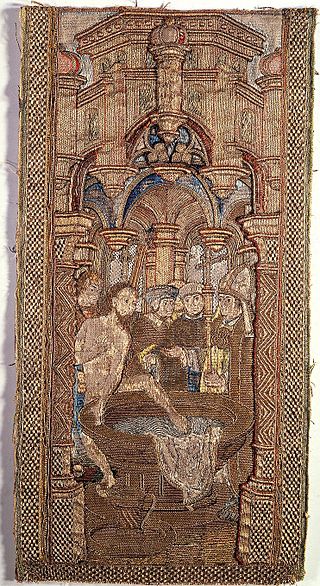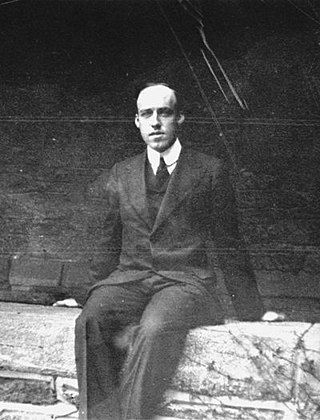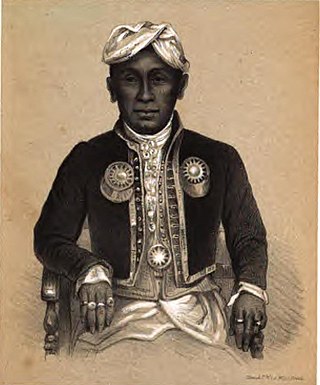
Porus or Poros was an ancient Indian king whose territory spanned the region between the Jhelum River (Hydaspes) and Chenab River (Acesines), in the Punjab region of the Indian subcontinent. He is only mentioned in Greek sources.

Philip II Philoromaeus or Barypous, a ruler of the Hellenistic Seleucid Empire, was the son of the Seleucid king Philip I Philadelphus, and the last Seleucid king.

Bryn Mawr College is a women's liberal arts college in Bryn Mawr, Pennsylvania. Founded as a Quaker institution in 1885, Bryn Mawr is one of the Seven Sister colleges, a group of elite, historically women's colleges in the United States, and the Tri-College Consortium along with Haverford College and Swarthmore College. Finally, it is one of 15 Quaker colleges in the United States. The college has an enrollment of about 1,350 undergraduate students and 450 graduate students. It was the first women's college to offer graduate education through a PhD.

Redbad or Radbod was the king of Frisia from c. 680 until his death. He is often considered the last independent ruler of Frisia before Frankish domination. He defeated Charles Martel at Cologne. Eventually, Charles prevailed and compelled the Frisians to submit. Redbad died in 719, but for some years his successors struggled against the Frankish power.
Mary R. Lefkowitz is an American scholar of Classics. She is the Professor Emerita of Classical Studies at Wellesley College in Wellesley, Massachusetts, where she previously worked from 1959 to 2005. She has published ten books over the course of her career.

Rhys Carpenter was an American classical art historian and professor at Bryn Mawr College.

Kaveh Farrokh is a Greek author of several academic books and peer-reviewed publications specializing in Iranian history, and has been a frequent lecturer on Iran-related topics at the University of British Columbia as part of the UBC Continuing Education program. Currently, he is a counselor and learning specialist at Langara College in Vancouver, British Columbia, Canada.

Arthur Valentijn Japin is a Dutch novelist.
Audulf or Audwulf, was a Frisian king at the time of the Great Migration,.

DierenPark Amersfoort is a 20-hectare (49-acre) zoo located on the West side of Amersfoort, in the province of Utrecht, on the edge of the Birkhoven forest, in the Netherlands.

Liudolf of Brunswick was Margrave of Frisia, Count of Brunswick, Count in the Derlingau and the Gudingau.

The Frisian–Frankish wars were a series of conflicts between the Frankish Empire and the Frisian kingdom in the 7th and 8th centuries.

The Frisian Kingdom, also known as Magna Frisia, is a modern name for the post-Roman Frisian realm in Western Europe in the period when it was at its largest (650–734). This dominion was ruled by kings and emerged in the mid-7th century and probably ended with the Battle of the Boarn in 734 when the Frisians were defeated by the Frankish Empire. It lay mainly in what is now the Netherlands and – according to some 19th century authors – extended from the Zwin near Bruges in Belgium to the Weser in Germany. The center of power was the city of Utrecht.

Pieter Cornelis Boutens was a Dutch poet, classicist, and mystic.
Jacobus Ruurd "Jaap" Bruijn, was one of the best known and respected Dutch maritime historians. He was professor of maritime history at the University of Leiden from 1979 until his retirement in 2003. During his 41-year teaching career as The Netherlands' only university professor of maritime history, he guided the doctoral theses of no fewer than 49 graduate students.
Robert Bagley is a professor of Chinese art history and archaeology in the Department of Art and Archaeology at Princeton University.
Waldemar Heckel is a Canadian historian.

Sultan Hidayatullah II of Banjar, known also as Pangeran Hidayatullah, Sultan Hidayat or simply Hidayat, was a sultan-pretender of the Sultanate of Banjar and a leader of the Banjarese rebels in the Banjarmasin War.
Edward "Ed" Bleiberg is an American archaeologist and Egyptologist. He graduated from Haverford College, did graduate studies at Yale University and the Hebrew University of Jerusalem, and finally received an M.A. and Ph.D. from the University of Toronto. Since 1998, he has been the curator of Egyptian, Near Eastern, and classical art at the Brooklyn Museum. Some of his academic work has included research into the Jewish minorities living in the ancient world and for his study of ancient Egyptian burial customs. He has also appeared in a documentary, King Tut's Gold.












